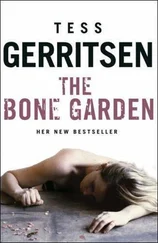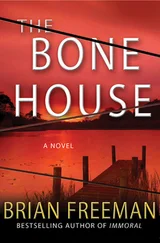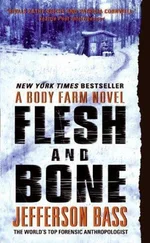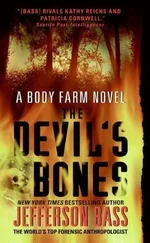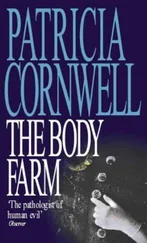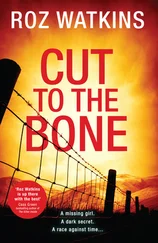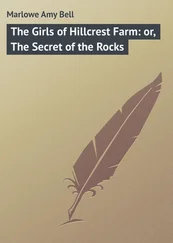“Me and Bubba, we figured there weren’t no point calling you out last night,” Cotterell drawled on. “Tough to find your way up that mountain in the damn daylight, let alone pitch dark. Besides, whoever it is, they ain’t any deader today’n what they was last night.”
“Good point, Sheriff.” I smiled, tucking away his observation for my own possible future use. “Couldn’t’ve said it better myself.” I checked my watch. “It’s eight fifteen now. How’s about we—my assistant and I—meet you at the courthouse around nine forty-five?”
“Bubba and me’ll be right here waitin’, Doc. ’Preciate you.”
TYLER WAINWRIGHT, MY GRADUATEassistant, was deep in thought—figuratively and subterraneanly deep—and didn’t even glance up when I burst through the basement door and into the bone lab.
Most of the Anthropology Department’s quarters—our classrooms, faculty offices, and graduate-student cubbyholes—were strung along one side of a long, curving hallway, which ran beneath the grandstands of Neyland Stadium, the University of Tennessee’s massive temple to Southeastern Conference football. The osteology laboratory lay two flights below, deep beneath the stadium’s lowest stands. The department’s running joke was that if Anthropology was housed in the stadium’s bowels, the bone lab was in the descending colon. The lab’s left side—where a row of windows was tucked just above a retaining wall, offering a scenic view of steel girders and concrete footers—was occupied by rows of gray, government-surplus metal tables, their tops cluttered with trays of bones. A dozen gooseneck magnifying lamps peered down at the bones, their saucer-sized lenses haloed by fluorescent tubes. The lab’s cavelike right side was crammed with shelving units—row upon row of racks marching back into the sloping darkness, laden with thousands of cardboard boxes, containing nearly a million bones. The skeletons were those of Arikara Indians who had lived and died two centuries before; my students and I had rescued them from rising river reservoirs in the Great Plains. Now they resided here in this makeshift mausoleum, a postmortem Indian reservation beneath America’s third-largest football stadium.
Tyler laid down the bone he’d been scrutinizing and picked up another, still not glancing up as the steel door slammed shut behind me. “Hey, Dr. B,” he said as the reverberations died away. “Let me guess. We’ve got a case.”
“How’d you know?” I asked.
“A, ” he said, “it’s a holiday, which means nobody’s here but me and you and a bunch of dead Indians. B, any time the door bangs open hard enough to make the stadium shake, it’s because you’re really pumped. C, you only get really pumped when UT scores a touchdown or somebody calls with a case. And D, there’s no game today. Ergo, you’re about to haul me out to a death scene.”
“Impressive powers of deduction,” I said. “I knew there was a reason I made you my graduate assistant.”
“Really? You picked me for my powers of deduction?” He pushed back from the lab table, revealing a shallow tray containing dozens of pubic bones, each numbered in indelible black ink. “I thought you picked me because I work like a dog for next to nothing.”
“See?” I said. “You just hit the deductive nail on the noggin again.” I studied his face. “You don’t sound all that excited. Something wrong?”
“Gee, let’s see,” he said. “My girlfriend’s just moved four hundred miles away, to Memphis and to med school; I’ve blown off two Labor Day cookouts so I can finally make some progress on my thesis research; and now we’re headed off to God knows where, to spend the day soaking up the sun and the stench, so I can spend tonight and tomorrow sweating over the steam kettle and scrubbing bones. What could possibly be wrong?”
“How long’s Roxanne been gone?”
“A week,” he said.
“And how long does medical school last?”
“Four years. Not counting internship and residency.”
“Oh boy,” I said. “I can tell you’re gonna be a joy to be around.”
THE BIG CLOCK ATOPthe Morgan County Courthouse read 9:05 when Tyler and I arrived in Wartburg and parked. “ Damn, we made good time,” I marveled. “Forty minutes? Usually takes an hour to get here from Knoxville.”
Tyler glanced at his watch. “Sorry to burst your bubble, but it’s actually nine thirty-seven. I’m guessing that’s one of those clocks that’s right twice a day.”
“Come to think of it,” I recalled, “seems like it was nine oh five two years ago, too, when I was here on another case.”
The stuck clock seemed right at home atop the Morgan County Courthouse, a square, two-story brick structure built back in 1904, back when Wartburg still hoped for a prosperous future. The building’s boxy lines were broken by four pyramid-topped towers—one at each corner—and by a graceful white belfry and cupola rising from the building’s center. Each side of the cupola—north, south, east, and west—proudly displayed a six-foot dial where time stood still. I suspected that it wasn’t just eternally 9:05 in Wartburg; I suspected that it was also, in many respects, still 1904 here. Sheriff James Cotterell, who stood leaning against the fender of the Ford Bronco parked behind the courthouse, would certainly have looked at home perched on a buckboard wagon, or marching in a Civil War regiment. Special Agent Meffert, on the other hand—one foot propped on the bumper—was a different matter. I could picture Meffert wearing a Civil War uniform, too, I realized, but Bubba’s eyes somehow had a 1992 knowingness to them; a look that—Civil War uniform notwithstanding—would have branded Bubba as a modern-day reenactor, not a true time traveler.
I made the briefest and most perfunctory of introductions: “Sheriff Cotterell, Agent Meffert, this is my assistant, Tyler Wainwright”—and then Tyler and I followed the lawmen out of town and up a winding mountain highway, parking on the shoulder at a narrow turnoff. There, we transferred our field kit into the back of the sheriff’s Bronco, a four-wheel-drive vehicle with enough ground clearance to pass unimpeded over a knee-high tree stump. The road to the strip mine was far too rough for my UT truck, Cotterell had assured me, and Meffert had agreed. Once we turned off the winding blacktop and into the pair of ruts leading up to the mine, I realized how right they’d been: I saw it with my jouncing eyes, and felt it in my rattling bones.
Cotterell and Meffert rode up front; Tyler and I sat in the back like prisoners, behind a wire-mesh screen, as the Bronco lurched up the mountain. “Last time I had a ride this rough,” Tyler shouted over the whine of the transmission and the screech of clawing branches, “I was on the mechanical bull at Desperado’s, three sheets to the wind. I hung on for twenty seconds, then went flying, ass over teakettle. Puked in midair—a comet with a tail of vomit.”
“If you need to puke now, son,” Cotterell hollered back, “give me a heads-up. You ain’t got no window cranks nor door handles back there.”
“I’m all right,” Tyler assured him. “Only had two beers for breakfast today.” He was probably joking, but given how morose he seemed over his girlfriend’s move to Memphis, he might have been telling the truth.
Eventually the Bronco bucked to a stop beside a high, ragged wall of stone, and the four of us staggered out of the vehicle. The shattered surface beneath our feet might have been the surface of the moon, if not for the kudzu vines and scrubby trees. “Watch your step there, Doc,” Cotterell warned over his shoulder as he and Meffert led us toward the looming wall. The warning was absurdly unnecessary—not because the footing was good, but because it was so spectacularly bad. The jagged shale debris left behind by the strip-mining ranged from brick-sized chunks to sofa-sized slabs.
Читать дальше

